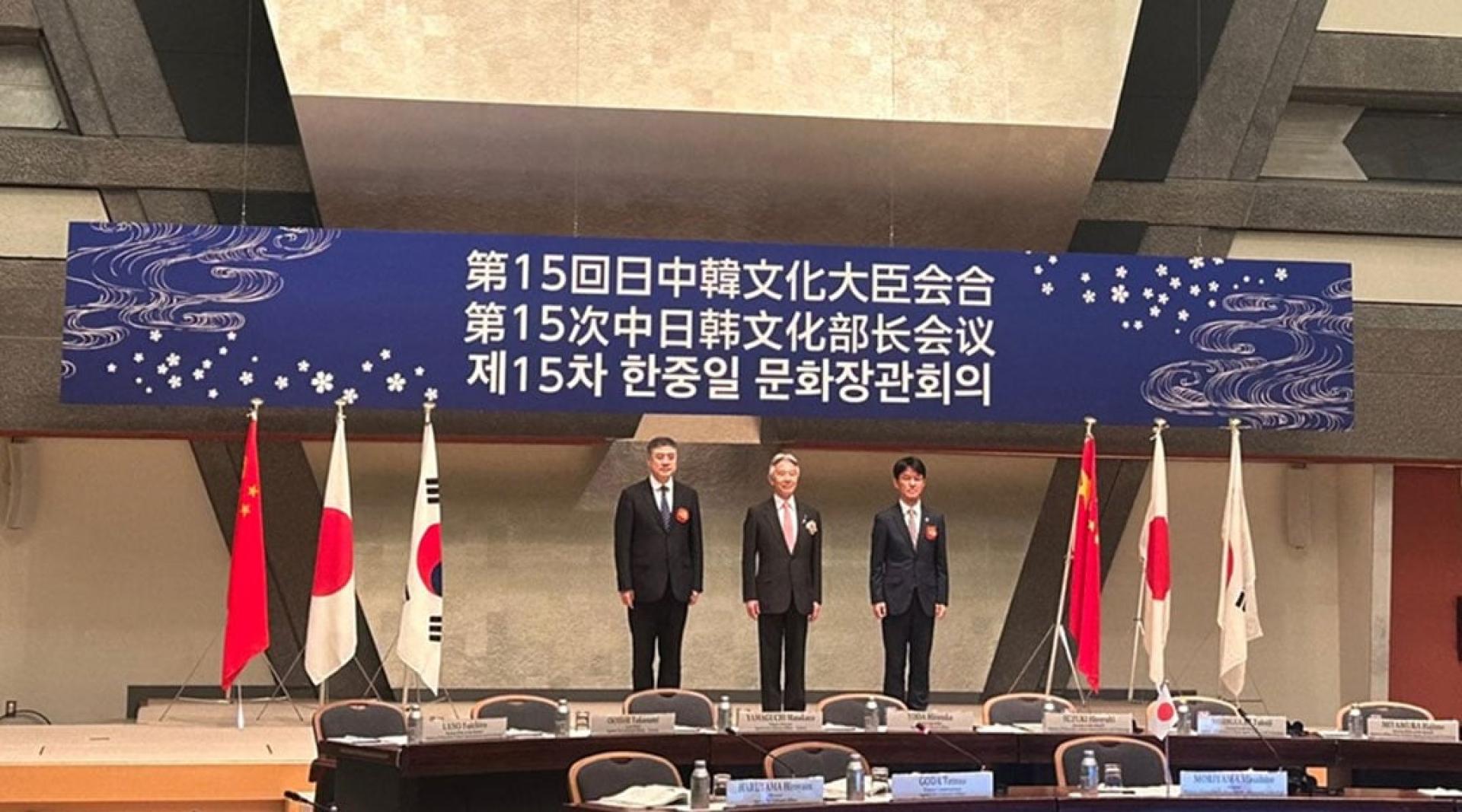Amid ongoing tensions in China-Japan relations triggered by Japanese Prime Minister Sanae Takaichi's recent remarks concerning Taiwan, the trilateral China-Japan-South Korea Culture Ministers' Meeting, originally scheduled for next week, has been postponed.
According to the Chinese Ministry of Foreign Affairs, Takaichi’s remarks have undermined the basis and atmosphere for China-Japan-South Korea trilateral cooperation, resulting in the necessary conditions for holding the relevant trilateral meetings being no longer present.
Yonhap News Agency reported that on the 20th, South Korea's Ministry of Culture, Sports and Tourism disclosed that China’s Ministry of Culture and Tourism had informed the South Korean side on the 18th that the 2025 China-Japan-South Korea Culture Ministers' Meeting, scheduled to be held in Macau on the 24th, would be postponed.
Since 2007, the China-Japan-South Korea Culture Ministers' Meeting has been held annually in rotation among the three countries, with the aim of promoting cultural exchange and cooperation. The South Korean ministry noted that China did not specify the particular reason for the postponement.
At a press conference on Thursday, Chinese Foreign Ministry spokesperson Mao Ning responded: “The Japanese leader has openly made extremely erroneous remarks regarding Taiwan, hurting the feelings of the Chinese people, challenging the postwar international order, and undermining the foundation and atmosphere for trilateral cooperation among China, Japan, and South Korea, thus making the conditions for holding relevant trilateral meetings no longer sufficient.”
In early November, Japanese Prime Minister Sanae Takaichi made statements in parliament concerning the “Taiwan contingency,” provoking a strong backlash from the Chinese side. In response, China exerted pressure across various fronts including tourism, educational exchanges, diplomacy, military affairs, and public opinion, demanding that Japan immediately engage in deep reflection and provide a clear explanation to the Chinese people.
